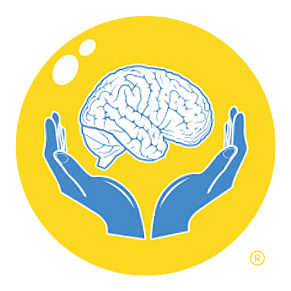
What's the Difference Between Vertigo and Dizziness? A Guide for Patients in Northern Illinois and Southeast Wisconsin
Blog:What's the Difference Between Vertigo and Dizziness? A Guide for Patients in Northern Illinois and Southeast Wisconsin

What's the Difference Between Vertigo and Dizziness? A Guide for Patients in Northern Illinois and Southeast Wisconsin
Welcome to A Ray of Hope, your trusted neurology and psychiatry care provider in Libertyville, Illinois, and Kenosha, Wisconsin. We understand that symptoms like vertigo and dizziness can significantly impact your quality of life. Our dedicated team is here to help you understand these conditions and provide effective treatment options. In this blog, we’ll explore the differences between vertigo and dizziness, their causes, and symptoms, and how we can help you manage them.
One of our many trusted physicians, Carol Jandron PA-C, explains all of this in fascinating detail located on our INSTAGRAM & FACEBOOK. We have more videos on the horizon where you can better learn the difference between many different conditions you or a loved one may be suffering from. Make sure to check us out and stay informed about health!
What is Vertigo?
Vertigo is a specific type of dizziness characterized by the sensation that you or your surroundings are spinning or moving. For example, if one were to move their head quickly, the room around them would spin rapidly. This feeling can be quite disorienting and is often accompanied by other symptoms. Here are some key aspects of vertigo:
Symptoms of Vertigo
- Spinning sensation: A strong feeling that you or your environment is rotating ranging from a couple of seconds to a minute
- Balance problems: Difficulty maintaining balance, which can lead to falls.
- Nausea and vomiting: Motion sickness-like symptoms often accompany vertigo.
- Nystagmus: Involuntary, rapid eye movements.
Causes of Vertigo
- Benign Paroxysmal Positional Vertigo (BPPV): The most common cause, triggered by changes in head position.
- Meniere’s Disease: A disorder of the inner ear associated with vertigo, hearing loss, and tinnitus.
- Vestibular Neuritis: Inflammation of the vestibular nerve, often due to a viral infection.
- Migrainous Vertigo: Vertigo is linked to migraines, involving the same triggers and symptoms.
What is Dizziness?
Dizziness is a broad term used to describe a range of sensations, such as feeling faint, lightheaded, or unsteady. For example, if one were to get up quickly and feel lightheaded immediately following, that is considered dizziness. Unlike vertigo, dizziness does not involve the sensation of spinning. Here are the main points about dizziness:
Symptoms of Dizziness
- Lightheadedness: A feeling as though you might faint.
- Unsteadiness: Difficulty maintaining your balance while walking or standing.
- Weakness: A general feeling of weakness or fatigue.
- Blurred vision: Temporary vision disturbances.
Causes of Dizziness
- Heart conditions: Irregular heartbeats or other cardiac issues such as blood flow to the brain.
- Dehydration: Insufficient fluid intake can lead to dizziness.
- Low blood pressure: Sudden drops in blood pressure can cause lightheadedness.
- Anxiety disorders: Chronic anxiety can manifest as dizziness.
Diagnosis and Treatment at A Ray of Hope
At A Ray of Hope: Great Lakes Institute for Neurology and Psychiatry, we have a wide array of providers who specialize in diagnosing and treating both vertigo and dizziness, such as Carol explained in our video. Our team of experienced neurologists and psychiatrists will work with you to identify the underlying cause of your symptoms and develop a personalized treatment plan. Here’s what you can expect:
Comprehensive Evaluation
- Medical History: A detailed review of your medical history to identify potential triggers and patterns.
- Physical Examination: A thorough physical and neurological examination to assess your symptoms.
- Diagnostic Tests: We may recommend tests or one of the many other resources we have at our disposal to pinpoint the cause of your vertigo or dizziness.
Treatment Options
- Medications: Depending on the diagnosis, medications such as anti-nausea drugs, antihistamines, or vestibular suppressants may be prescribed.
- Lifestyle Modifications: Recommendations for changes in diet, hydration, and stress management to help alleviate symptoms.
- Counseling and Therapy: For dizziness related to anxiety, cognitive-behavioral therapy (CBT) and other therapeutic approaches can be beneficial.
Why Choose A Ray of Hope?
Serving the communities of Libertyville, IL, and Kenosha, WI, A Ray of Hope is dedicated to providing compassionate, comprehensive care. Our team is committed to staying updated with the latest advancements in neurology and psychiatry to ensure you receive the best possible care such as treating vertigo or dizziness.
Patient-Centered Approach
- Personalized Care: We recognize that every patient who walks through our door differs from the last. As a result, we tailor our treatment plans to meet the unique needs of each patient.
- Holistic Care: Addressing both vertigo and dizziness's physical and psychological aspects.
- Convenient Locations: With offices in both Libertyville and Kenosha, we are easily accessible to our community located in northern Illinois and southeast Wisconsin
If you or a loved one is experiencing vertigo or dizziness, don’t let these symptoms disrupt your life. Contact A Ray of Hope: Great Lakes Institute for Neurology and Psychiatry today to schedule an appointment by calling (847)-816-6335 or Request an Appointment here on BansalNeuro.com and take the first step towards effective treatment and improved well-being. Our team is here to help you regain your balance and enjoy a better quality of life.
A Ray of Hope: Great Lakes Institute of Neurology and Psychiatry
- Libertyville, IL Office: 1860 W. Winchester Rd, STE 106, Libertyville, IL, (847-816-6335)
- Kenosha, WI Office: 4600 Green Bay Rd, Kenosha, WI, (847-816-6335)
For more information, visit our website or call us to schedule an appointment. We look forward to helping you achieve optimal health and well-being.




